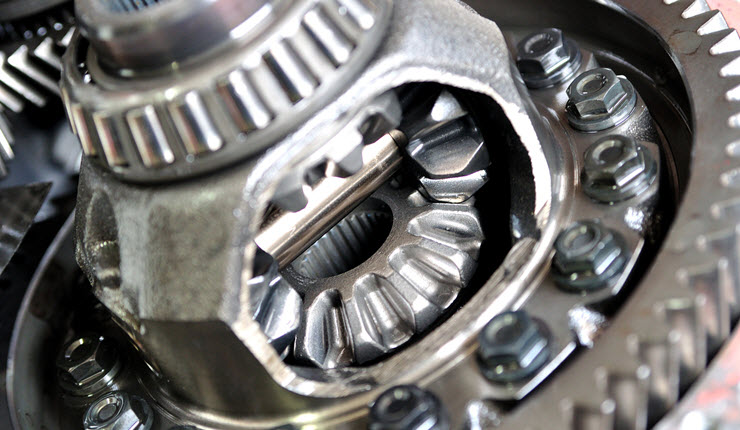Every car has a differential, but it works slightly differently in each model. Essentially, the differential’s job is to maintain balance and consistency while the wheels turn in order to help your car turn smoothly around corners. Your outer wheels have to travel a longer distance than your inner wheels when you turn. Your Mercedes is able to make corners due to the differential. As you can imagine, its role makes the differential a vitally important part of a vehicle’s internal systems.
One misconception that a lot of Mercedes owners have about the differential is that you never need to change the oil in it. Mercedes tends to market the oil inside the differential as “lifetime fluid.” However, when it comes to cars, everything is variable. In most cases, “lifetime fluid” doesn’t mean that you will never need to change the fluids. It leans more towards the notion that if you buy a new Mercedes and trade it in after a few years, you most likely won’t need to be the owner to change it out. However, it does need maintenance.
For example, while normally, differential oil needs to be changed every 30,000 miles or so, with lifetime fluid, that timeframe doubles to about every 60,000 miles.
The reason why you can’t leave the same oil in the differential forever is that, unlike for the oil that goes to the engine, the differential has no oil filters inside it. This means that as the gears inside wear away and rub against each other, little pieces of metal can flake off and get into the oil, gumming it up, corroding it, and making it less effective at its job. Eventually, that dirty oil needs to be changed or the differential will stop working entirely.
Keeping up with routine maintenance tasks like this is the best way to avoid having to deal with dangerous and costly problems farther down the line. Because each car has a slightly different system, even within the same brand of vehicles, it is best to let a professional and experienced Mercedes mechanic handle the changing process for the differential oil.
Common Signs of a Failing Differential System
Though it is always best to stop these sorts of problems before they start, sometimes you’ll run into differential problems anyway due to natural wear and tear.
If you believe your Mercedes may be experiencing differential problems, here are a few symptoms to watch out for that will help you pinpoint this as the nature of the problem.
If you notice these, take your car to a mechanic as soon as you can, as differential failure is not only annoying, it can also be incredibly dangerous to you, your passengers, and other drivers on the road.
Steering issues
Because the differential is in charge of controlling the wheels and helping with turns, one potential sign of failure is trouble steering. You might find it very difficult to go around turns, and you may even have problems keeping your vehicle straight when driving down the road normally.
Uneven or unusual tire wear
Tires naturally get worn down over time, so tire wear by itself is not necessarily a sign of a bad differential. However, because part of the differential’s job is to help maintain balance over all four wheels, if you notice that one wheel is significantly more worn down than the others, even though you got them all at around the same time, it could be because of the differential.
Similarly, if your tires are relatively new, but they are already very worn down, that could be a sign of differential problems as well.

Escondido German Auto Will Help
Whether your differential is already failing or you are interested in routine maintenance and proactive car care prevention, the best place to go is our trusted Escondido German Auto shop. We are conveniently located for clients in Escondido, Rancho Bernardo, and Valley Center, CA and the surrounding communities.
We specialize in European brands such as Audi, BMW, Mercedes-Benz, MINI, Porsche, Sprinter, Volkswagen. You can rely on our commitment to quality service to repair your vehicle and get you back on the road safely with confidence in your drive. Call us today.

